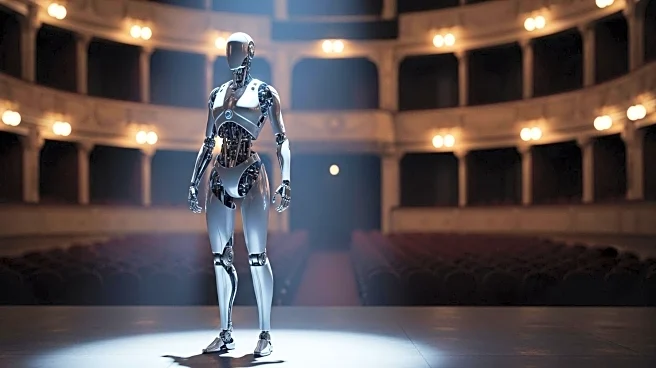What's Happening?
The entertainment industry is currently facing a significant development with the introduction of Tilly Norwood, an AI-generated actress. Tilly, unlike traditional actors, does not require union membership, has no restrictions on working hours, and does not need the entourage typically associated with human talent, such as publicists and agents. This innovation has stirred discussions about the potential impact of AI on the industry, raising questions about the future of human actors and the traditional structures of talent management. The emergence of AI actors like Tilly Norwood could lead to a shift in how entertainment is produced and consumed, challenging existing norms and practices.
Why It's Important?
The introduction of AI actors like Tilly Norwood could have profound implications for the entertainment industry. It may lead to reduced costs for production companies, as AI actors do not require salaries, benefits, or the logistical support that human actors do. However, this could also result in job losses for those working in talent management and support roles. The ethical considerations of replacing human creativity and talent with AI are significant, as it raises questions about the value of human artistry and the potential homogenization of entertainment content. The industry must grapple with these changes and consider the long-term impact on its workforce and creative output.
What's Next?
As AI technology continues to advance, the entertainment industry may see more AI-generated actors and content. This could lead to new regulations and standards to address the ethical and practical implications of AI in entertainment. Industry stakeholders, including unions, production companies, and policymakers, will need to engage in discussions to ensure that the integration of AI respects the rights and contributions of human workers. The future may involve a hybrid model where AI and human actors coexist, each contributing uniquely to the creative process.
Beyond the Headlines
The rise of AI in entertainment could also influence cultural perceptions of creativity and authenticity. As audiences become more accustomed to AI-generated content, there may be shifts in what is considered valuable or genuine in artistic expression. This could lead to a reevaluation of the role of human creativity in a digital age, where technology increasingly mediates cultural experiences.









